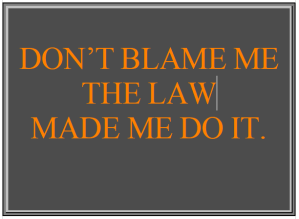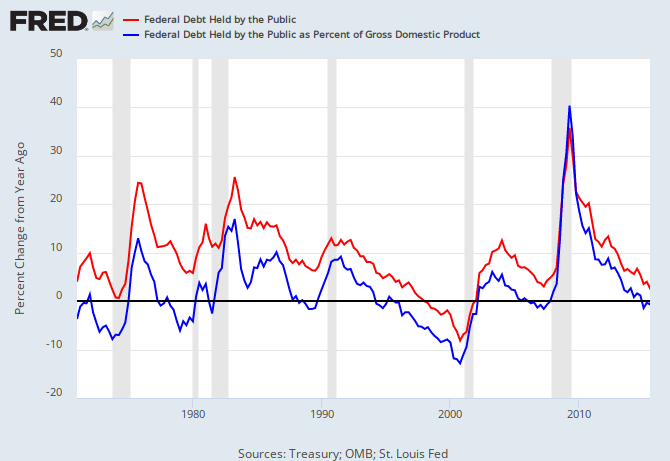Supreme Court Justices often justify their decisions by claiming to be “originalists,” or “textualists,” and no one wishes to be considered “activist.’
The reason: They can hide behind the framers of the Constitution in a “Don’t-blame-me. The-law-forces-my-opinion. If-you-don’t-like-the-law,-change-it” exercise.
Justices are people. They have beliefs and prejudices that have built up over many years. Based on those beliefs and prejudices, they want cases to go a certain way.
You may think that in making a decision, a justice first researches the Constitution for guidance, and then refreshes with a comb-through of previous decisions. finally to amalgamate it all into a decision.
The reality seems quite the opposite.
Based on the decisions themselves, it seems clear that the decision usually comes first, and then the research is done to justify it.
How else could there be predictably “right-wing” and “left-wing” justices? They all read the same Constitution. They all have the same precedents before them. They all know the same law.
Yet most of the time, they vote along “party” lines. That is why the GOP was in such a hurry to nominate Amy Coney Barrett. Barring a rare surprise, they know how she will rule.
Unless you believe it is all coincidence, there is only one way in which you repeatedly see the same justices making the same “right” or “left” decisions: Their minds are made up beforehand, and then they search for justification.
And that is why “originalism” and “textualism” are monstrous lies. In truth, all justices are activists.
ORIGINALISM:
In the context of United States law, originalism is a concept regarding the interpretation of the Constitution that asserts that all statements in the constitution must be interpreted based on the original understanding “at the time it was adopted”.
This concept views the Constitution as stable from the time of enactment and that the meaning of its contents can be changed only by the steps set out in Article Five. This notion stands in contrast to the concept of the Living Constitution, which asserts that the Constitution should be interpreted based on the context of the current times, even if such interpretation is different from the original interpretations of the document.
Originalism, a term that was adopted in the 1980s, is related to:
TEXTUALISM:
Textualism is a formalist theory in which the interpretation of the law is primarily based on the ordinary meaning of the legal text, where no consideration is given to non-textual sources, such as intention of the law when passed, the problem it was intended to remedy, or significant questions regarding the justice or rectitude of the law.
ACTIVISM:
Making decisions based on personal political views or considerations rather than on the law as written or intended. This is closely related to the concept of the Living Constitution.
——————————————————————————————————————————————————————————————————————————————————————————————————————————————
To the right-wing, “activist” is what left-leaning justices are called, when their decisions disagree with the right-wing. In truth, all justices, left and right, are activists.
The ostensible, though often subtle, difference between originalism and textualism is the former looks for the intent of the authors and the latter is more strict in following the actual meaning of the words. The real difference comes up when a Justice shifts between the two, in trying to justify a position.
All Justices are originalist and textualist and activist, with the degree depending on the subject.
The conclusion: Originalism/Textualism does not really exist. It is an excuse for a decision by a Justice who has his/her mind locked by political or emotional biases.
The “king,” though not the originator of the term “originalism” was Antonin Scalia, who proudly defended originalism this way:
“Non-originalists must agonize over what the modern Constitution ought to mean with regard to (various) subjects,” and then agonize over the very same questions five or 10 years later, because times change.”
Because, for instance, abortion and LGBTQ rights weren’t specifically granted in the Constitution they, in Scalia’s opinion, were not rights. Being an originalist made his job easier, he said.
In short, Scalia boasted about how not having to agonize about decisions as times change makes his job easier, as though the ease of his workload was more important than making decisions appropriate to changing circumstances. And this lazy concept is widely respected?
Justices Clarence Thomas, Neil Gorsuch, Brett Kavanaugh, and Amy Coney Barrett are today’s self-proclaimed originalists.
Proudly “originalist” Justice Neil Gorsuch said:
“A good originalist judge will not hesitate to preserve, protect, and defend the Constitution’s original meaning, regardless of contemporary political consequences. Whether that means . . . prohibiting the government from slapping a GPS tracking device on the underside of your car without a warrant (the Fourth Amendment) . . . “
” . . . often enough it may be tempting for a judge to do what he thinks best for society in the moment, to bend the law a little to an end he desires, to trade just a bit of judicial integrity for political expediency.”
Whoa, “originalist” Justice Gorsuch. Where does the Constitution mention GPS tracking devices, or for that matter, cars? Aren’t you bending the law a little for political expediency? Yes, but this is different, right? No, wrong.
How does a Fourth Amendment prohibition against “unreasonable searches and seizures” textually prohibit GPS tracking devices? Is a GPS a “search”? Is a GPS a “seizure”? Is it “unreasonable”? Where are these definitions in the Constitution?
Is observing someone by using binoculars, or standing close and overhearing, or merely following someone, an unreasonable search or a seizure? And aren’t you liable to commit the “crime” of “agonizing over the very same questions five or 10 years later, because times change” every time a new observation device is invented?
Justice Amy Comey Barrett: “[Originalism] means that I interpret the Constitution as a law, that I interpret its text as text and I understand it to have the meaning that it had at the time people ratified it. So that meaning doesn’t change over time. And it’s not up to me to update it or infuse my own policy views into it.”
But if she is interpreting it “as text,” where is the interpretation?
Soon she will rule on hot button items like the Affordable Care Act and abortion. One wonders on what specific text in the Constitution she will rely.
The classic example of how the “isms” may be used and twisted come with the 2nd Amendment:
“A well regulated Militia, being necessary to the security of a free State, the right of the people to keep and bear Arms, shall not be infringed.”
“Well-regulated”: Why did the framers say not just “regulated,” but “well-regulated”? Clearly, they recognized the real danger inherent in people keeping and bearing deadly Arms, but felt this danger was acceptable for the security of America, so long as it was part of a well-regulated Militia, and not solely composed of gun-nuts.
“Militia”: Defined as a military force that is raised from the civil population to supplement a regular army in an emergency. The purpose of the people keeping and bearing arms is not for hunting, target shooting, or for self-protection. The purpose is to be ready on a moment’s notice, to supplement the regular army.
“Keeping and bearing”: As part of a well-regulated Militia, the people can store and carry Arms.
“Arms”: Here’s where the originalists and textualists really have to twist and turn, because they have no idea what this term means. Currently, it seems to include modern weapons that did not exist when the Constitution was written, which certainly should disqualify them from textualism and arguably from originalism.

But it gets even worse. There seems to be some tacit agreement that “Arms” includes semi-automatic weapons, but does not include automatic rifles. (You can get one, but the process is difficult, slow, and expensive, and you have to have a perfectly clean record.)
Where is that distinction anywhere in the Constitution? An honest reading by an originalist or a textualist would hold that neither intent nor text could include weapons that were not even conceived of by the framers, and certainly not by any difference between semi-automatic and automatic.
Making such a distinction would be considered activist, unless it’s made by a right-wing justice, in which case its originalist — somehow.
Will Amy Comey Barrett understand the 2nd Amendment to have the meaning that it had at the time people ratified it — well-regulated militia, flintlock pistols and all?
Don’t bet on it.
The most hilarious distinction was made by the spiritual leader of originalism, Antonin Scalia, who somehow was able to justify eliminating all first thirteen words of the Second Amendment, while still not being considered “activist.”
Shall we assume his being not only a right-winger but, like his grandfather, an avid hunter — a member of the International Order of St. Hubertus, a “secretive society of elite hunters,” — had nothing to do with his decision?
In summary:
Depending on the subject, there are no originalist justices. There are no textualists. All justices are activists, some more so than others. Don’t believe any justice who says otherwise.
Rodger Malcolm Mitchell Monetary Sovereignty Twitter: @rodgermitchell Search #monetarysovereignty Facebook: Rodger Malcolm Mitchell …………………………………………………………………………………………………………………………………………………………………………………………………………………………………………………………………………………………..
THE SOLE PURPOSE OF GOVERNMENT IS TO IMPROVE AND PROTECT THE LIVES OF THE PEOPLE.
The most important problems in economics involve: Ten Steps To Prosperity:
- Eliminate FICA
- Federally funded Medicare — parts A, B & D, plus long-term care — for everyone
- Social Security for all or a reverse income tax
- Free education (including post-grad) for everyone
- Salary for attending school
- Eliminate federal taxes on business
- Increase the standard income tax deduction, annually.
- Tax the very rich (the “.1%”) more, with higher progressive tax rates on all forms of income.
- Federal ownership of all banks
- Increase federal spending on the myriad initiatives that benefit America’s 99.9%
The Ten Steps will grow the economy and narrow the income/wealth/power Gap between the rich and the rest. MONETARY SOVEREIGNTY

